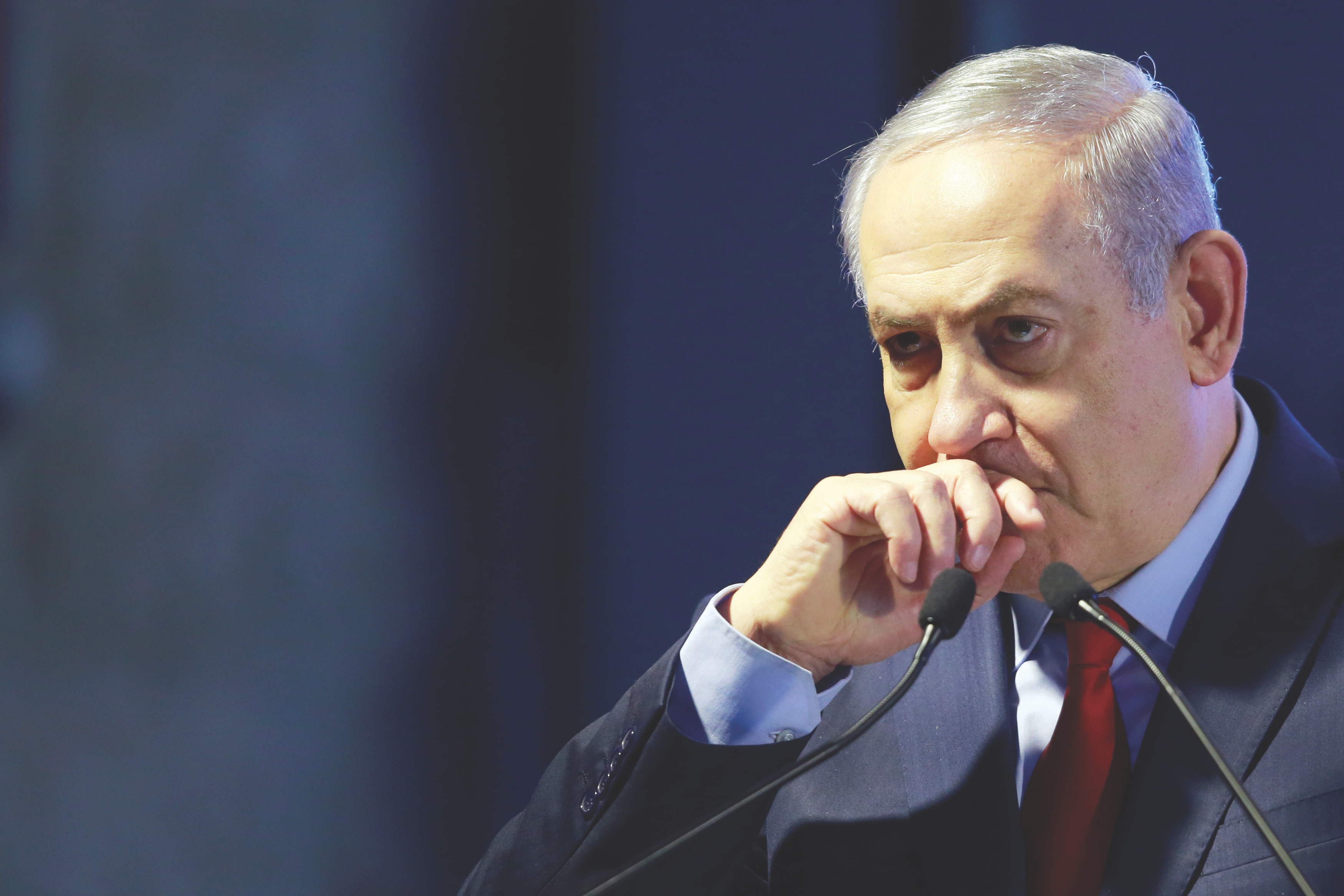 Israeli Prime Minister Benjamin Netanyahu REUTERS/Amir Cohen
Israeli Prime Minister Benjamin Netanyahu REUTERS/Amir Cohen Prime Minister Benjamin Netanyahu was always obsessed with the media. He was always at war with the media. He always put the media market at the top of his list of needed changes. For a politician (as Americans must know), fighting the media is not a bad strategy. But Netanyahu did not just fight it — Netanyahu strived to use his power to redesign the media market to his advantage. With one hand, he fought the media that was critical of him; with the other, he nurtured a media that could glorify him.
Fighting the media is not always a virtuous strategy, but also not always a condemnable one. Netanyahu had many good reasons to suspect that the established media was against him — and had reasons to assess that fighting back will buy him support among the people.
Things got murkier, and more problematic, when Netanyahu was actively using his influence and power as the prime minister to get himself a more adoring media. Murkier, because it is not always to separate a legitimate policy preference (to have a more open media market) from a less legitimate private interest (to have a media that writes adoringly about Netanyahu). Problematic, because Netanyahu, as the prime minister, can find ways to reward the media that writes adoringly about him and punish the media that remains critical of him.
Of course, almost all politicians reward media outlets they like (by giving them scoops, by leaking information to their journalists) and punish those they dislike (by denying them information). But Netanyahu went beyond that — or so the police suspect. He rewarded the tycoons that own the media by carving rules and legislation to serve their financial interests. That’s the essence of Case 4000 — not to be confused with the two cases against Netanyahu that made headlines last week (on Feb. 20, another case was added to the mix: an alleged attempt by a man close to Netanyahu to appoint a certain attorney general in exchange for closing an investigation against his wife, Sara).
The criminal aspect of this new case will be more difficult to prove.
Case 4000 is simple: A tycoon, Shaul Elovitch, owns many businesses in Israel, among them a very popular news website, Walla. The police argue that in exchange for positive coverage on this website, Netanyahu used his power as the prime minister, and as the minister of communication — a position he insisted on keeping himself — to benefit Elovitch. One example: Netanyahu allegedly used his influence to override antitrust claims to make Elovitch eligible to take over the satellite cable provider Yes.
There are things that will be easy to prove in this case. As far back as 2015, Haaretz investigative reporter Gidi Weitz convincingly demonstrated that Walla was highly favorable to Netanyahu. But that is not a crime. Any owner of any media outlet makes rules for his company, and if this particular tycoon decided that his media company will have a certain political flavor, it is not yet a matter for the police to investigate.
The criminal aspect of this new case will be more difficult to prove: Was there a clear quid pro quo? Did Netanyahu help a tycoon (and hurt the public) to get positive coverage? Proving that Netanyahu assisted Elovitch is not enough. He might have assisted him for good reasons, because these were proper deals in line with his policies. There needs to be proof that Netanyahu aided Elovitch for bad reasons, that he aided him in order to get positive coverage.
Fighting the media is not always a virtuous strategy, but also not always a condemnable one.
But what if Netanyahu had good and bad reasons? What if he can demonstrate that his decisions were all in line with his policies — and still a suspicion remains that the positive coverage gave him the extra incentive to work for the deals? Like many such cases, a lot depends on interpretation, on weighing the evidence. But in this case, unlike many such cases, the outcome will not be something that concerns only the suspects, because the outcome is a public matter. It could topple a government. It could ruin a ruling coalition.
Last week, the police recommended to change Netanyahu in Cases 1000 and 2000 (another case involving Netanyahu and his relations with the media). The prime minister pushed back and got what he needed — more time. His coalition partners agreed to reserve judgment until the attorney general makes the ultimate decision whether to charge the Netanyahu. They did not yet change their minds, but the prime minister knows that they can quickly do it.
So, on the one hand, Case 4000 is just another straw in a large pile of many straws. On the other hand, it could be the straw that breaks Netanyahu’s back.























 More news and opinions than at a Shabbat dinner, right in your inbox.
More news and opinions than at a Shabbat dinner, right in your inbox.